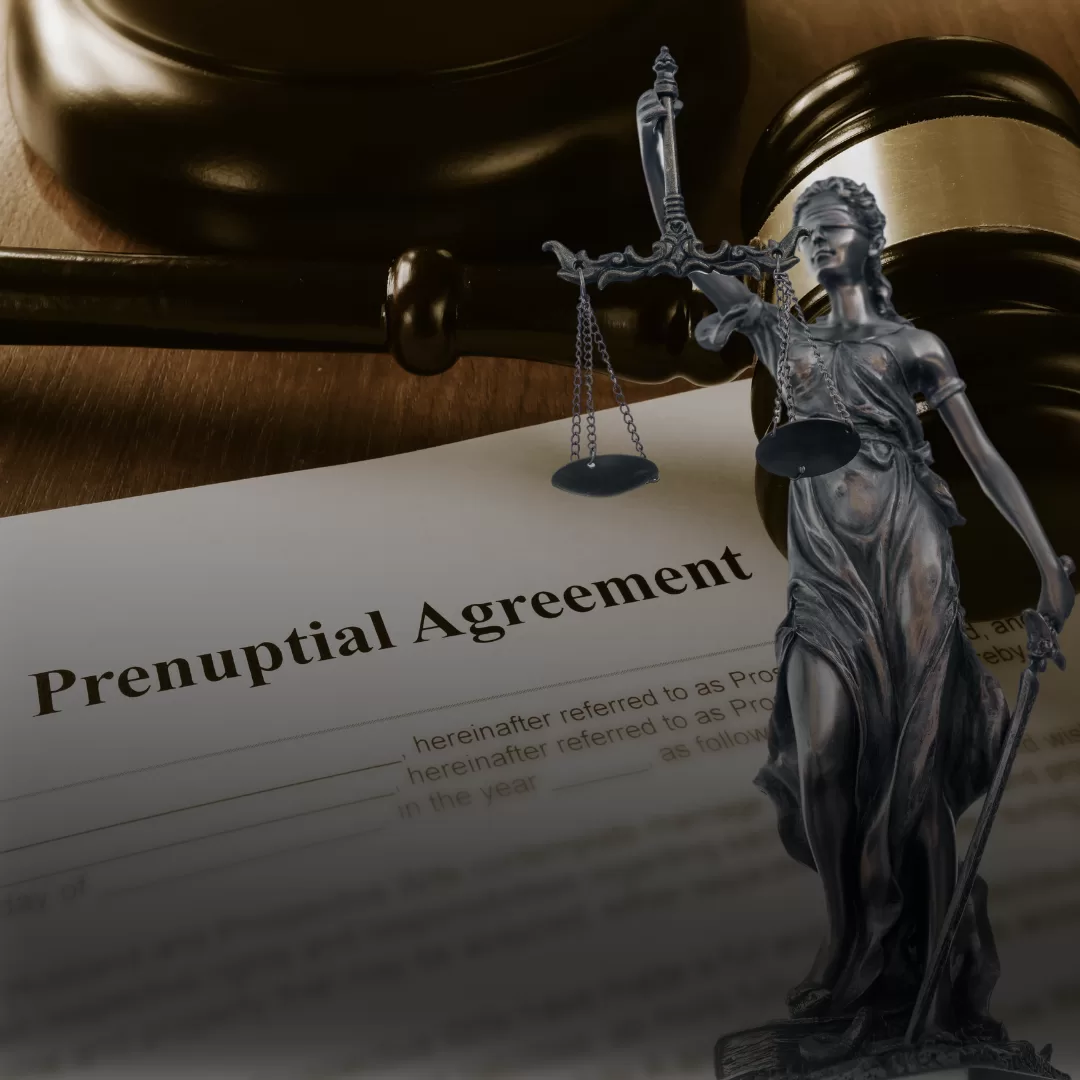If you’re considering a prenuptial agreement, it’s likely because you want to enter your marriage thoughtfully, with open communication and protection for both yourself and your partner. Let’s talk about what a prenup can actually do and how it might benefit your relationship. While it’s often associated with protecting wealth, a prenup is about much more—it’s a chance to set clear expectations and create a sense of security as you begin your life together.
Why a Prenup Can Be a Smart Move
A prenuptial agreement, often called a “prenup,” is a contract you and your partner sign before marriage that lays out how you’d like to handle finances, property, and debts if things don’t work out or if one of you passes away. Here’s how it can benefit your future:
- Protecting Personal Assets: If you have valuable items like family heirlooms, property, or even a business, a prenup helps ensure these stay with you. It keeps them separate from what’s considered “marital property.”
- Setting Financial Expectations: A prenup allows each of you to clarify financial responsibilities, including any shared debts or plans for spousal support. By defining these now, you can avoid misunderstandings down the line.
- Preserving Individual Rights: For many couples, a prenup also serves to safeguard personal property and inheritance rights, adding another layer of fairness and clarity to the relationship.
Prenups can help prevent conflict later and give both of you a sense of stability. When you know where you stand financially, it can be easier to focus on building a strong, lasting relationship.
Who Could Benefit from a Prenup?
Prenups are not only for the wealthy. Many couples find them helpful, especially if any of the following apply:
- Second Marriages: If one or both of you have children or assets from a previous marriage, a prenup helps protect those interests, ensuring your children are cared for.
- Significant Individual Assets: Bringing in substantial assets like a business, real estate, or investments? A prenup can help keep these separate.
- Business Ownership: For couples who own a business, a prenup can lay out how the business will be managed if things don’t work out, protecting both your personal and business interests.
- Children from Prior Relationships: A prenup can make provisions for the financial support and inheritance rights of children from a previous relationship.
What Can and Can’t Be Included in a Maryland Prenup
A Maryland prenuptial agreement is quite flexible, allowing you to address several financial topics. However, there are limits to what a prenup can decide.
What a Prenup Can Include:
- Division of Assets: Specifying how you want to divide things like property, investments, and other valuables.
- Debt Responsibility: Deciding who will handle any debts accumulated before or during the marriage.
- Spousal Support (Alimony): You can agree on potential spousal support in advance.
- Inheritance Rights: Setting guidelines around inheritance to prevent confusion in the future.
What a Prenup Can’t Include:
- Child Custody and Support: Decisions about children’s living arrangements and support are based on what’s best for the child at the time of divorce, not what’s in a prenup.
- Waiving Parental Rights: No prenuptial agreement can take away a parent’s right to be involved in their child’s life.
For a prenup to be enforceable in Maryland, it has to meet certain criteria, including fair disclosure of finances, separate legal counsel, voluntary consent, and reasonable terms.
Prenuptial Agreement Cost in Maryland
The cost of a prenuptial agreement in Maryland can vary depending on several factors, including the complexity of the agreement, the experience of the attorney, and the specific needs of the couple. However, here’s a general breakdown of the costs you might expect:
Average Costs:
- Drafting: Expect to pay around $780-$900 for an attorney to create your prenuptial agreement.
- Review: If you have a draft from somewhere else, a lawyer typically charges about $700-$900 to review it.
Factors Influencing Costs:
- Complexity: More complex situations, like significant assets or businesses, will increase the cost due to the extra time needed to draft the agreement.
- Attorney’s Experience: More experienced attorneys may charge higher rates because of their expertise.
- Negotiations: If there are disagreements between you and your partner, that may lead to additional legal fees.
What Happens Without a Prenuptial Agreement in Maryland?
If there’s no prenuptial agreement in place, Maryland’s equitable distribution laws will determine how property is divided. This doesn’t necessarily mean a 50-50 split; instead, Maryland courts aim to divide things fairly based on factors such as:
- Length of the Marriage: Long-term marriages might involve a more even split.
- Contributions of Each Spouse: This includes both financial contributions and non-financial contributions, like childcare and household support.
- Earning Capacity and Health: Factors that affect future earning potential and quality of life are also considered.
- Without a prenup, you could face uncertainties about how assets, debts, and potential spousal support will be handled if things don’t work out. A prenup gives you both clarity, security, and more control over these important areas.
Potential Issues Without a Prenup
Without a prenuptial agreement, you may face uncertainty and potential conflict during a divorce. Some potential issues include:
- Division of Assets: The court will decide how to divide marital property, which can lead to disputes and legal fees.
- Debt Allocation: The court will determine who is responsible for marital debts, which can have significant financial implications.
- Spousal Support: The court may order one spouse to pay spousal support to the other.
- Child Custody and Support: While a prenup cannot dictate child custody or support, it can influence the court’s decision by outlining the parents’ wishes.
When Should You Start the Prenuptial Agreement Process?
If you’re thinking about a prenuptial agreement, it’s a good idea to start the conversation early, well before your wedding date. Here’s why:
- Open Discussions: Early planning allows you and your partner to talk openly about your financial goals and values.
- Financial Information Gathering: You’ll both need time to gather relevant documents like bank statements, tax returns, and property deeds.
- Consulting Attorneys: Each of you should have your own legal representation to ensure fairness and transparency.
- Starting early also minimizes the chances of feeling rushed or pressured, which can make a big difference if the agreement is later questioned in court.
Can a Prenuptial Agreement Be Contested in Maryland?
While marriage agreements are typically enforceable, there are certain situations where they may be challenged. These include:
- Lack of Full Disclosure: If one partner hid significant financial information.
- Duress or Pressure: If one partner was pressured or coerced into signing.
- Unfairness (Unconscionability): Courts may reject an agreement that appears excessively one-sided or unfair.
Why Work with a Trusted Lawyer?
Having a reliable, experienced prenuptial agreement attorney in Maryland is essential for creating an agreement that protects your interests and is likely to hold up in court. Here’s how an attorney can help:
- Ensure Full Disclosure: Help you both disclose all financial information openly.
- Protect Your Rights: Make sure the agreement is clear and fair and considers both partners’ best interests.
- Draft a Strong, Enforceable Agreement: Craft a document that’s legally sound and protects your future.
Ready to start your prenuptial planning? At Divorce With a Plan, we’re here to support you every step of the way. Call us at (240) 269-3592 to schedule your consultation. Taking these steps now can make a world of difference in feeling secure and confident about your future together.






